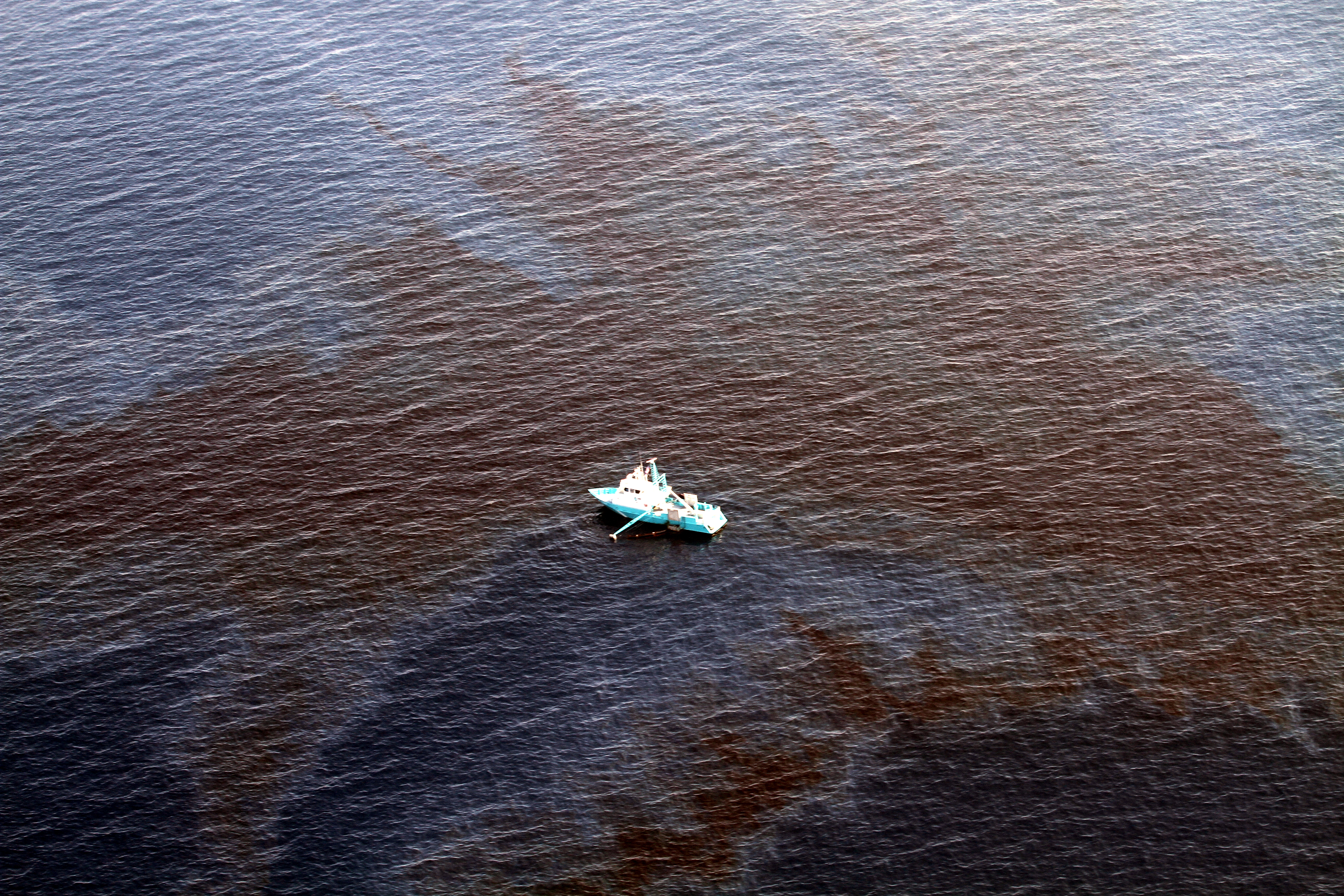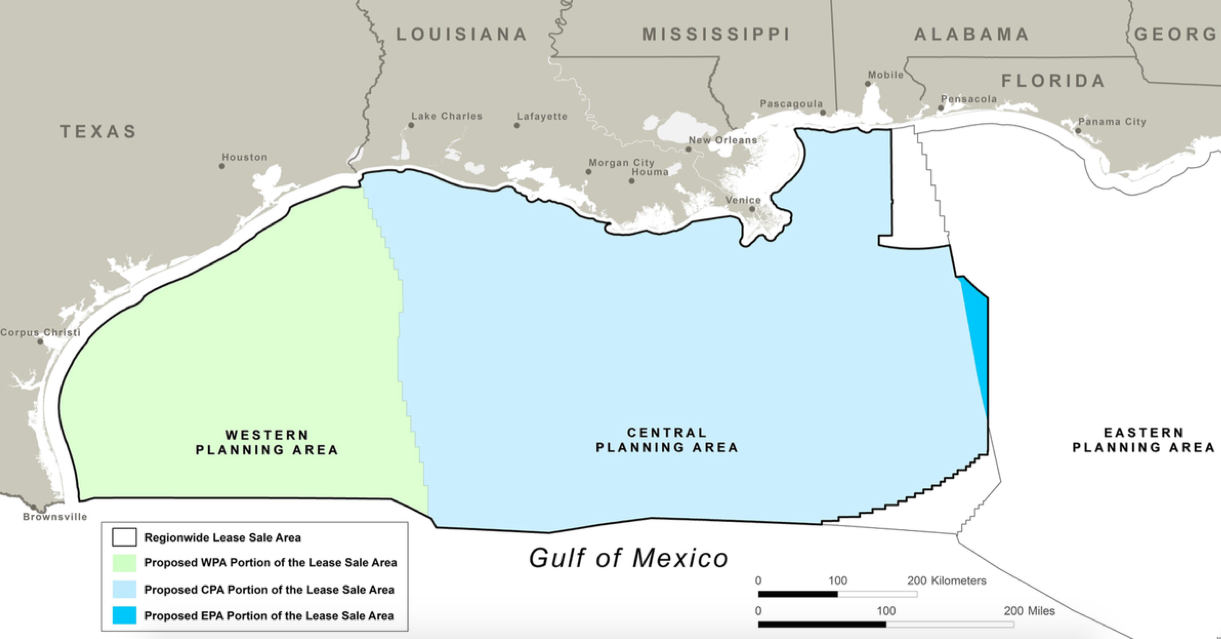By Emily Millar
A storm is brewing in the Gulf of Mexico and this time it’s not a hurricane.
Back in March, the Obama Administration announced the sale of 13 new offshore drilling leases between 2017-2022. Ten of them would be located in the Gulf. This announcement ignited significant opposition in coastal communities, which was reinforced in mid-May when Shell spilled 88,000 gallons of crude oil into the waters south of Louisiana, serving as a dark reminder of the risks that come with such endeavors.
The risk of another Deepwater Horizon-type spill is enough to enrage the most content citizen, but it's not just fear of another “big one” that likely drives concern from Gulf Coast communities. Oil spills aren’t the only threat that these new wells could pose.

The Sierra Club submitted a series of comments on the proposed offshore drilling leases to the Bureau of Ocean Energy Management (BOEM), citing not only the aforementioned risk of oil spills but also the increased direct and indirect carbon pollution and potential harm to oceanic and coastal ecosystems that these potential new drilling projects would cause.
The Lone Star Chapter’s Conservation Director Cyrus Reed also prepared Texas-specific comments. He noted that BOEM has failed to adequately analyze significant places and species in the Gulf of Mexico that deserve special protection, such as sea turtles and migratory birds and the Flower Garden Banks National Marine Sanctuary, which is being considered for expansion. Reed also highlighted the lack of consideration given to renewable energy development in the Gulf, such as offshore wind and floating solar which would not only be a more environmentally friendly option but would also help prepare the energy sector for the inevitable transition from oil.
But as I was reading Reed’s comments, one specific phrase jumped out at me: “we were appreciative of the decision by the Obama Administration to remove future leasing and drilling for the 2017-2022 for the Atlantic Region.”
The Atlantic Coast Gets Spared - Not the Gulf Coast
According to a statement made by Secretary of the Interior Sally Jewell, the decision to exclude the Atlantic region from potential drilling sites was motivated by “conflicts with national defense, economic activities such as fishing and tourism, and opposition from many local communities. [I]t simply doesn’t make sense to move forward with lease sales in the coming five years.” Many of these factors mirror the current state of the Gulf of Mexico and its communities. The Gulf of Mexico is one of the premier fishing locations in the world both commercially and recreationally. The Gulf of Mexico has a nearly $100 billion a year tourism industry. The Gulf of Mexico is home to thousands who wholeheartedly oppose additional oil rigs in their waters. So my question is, why weren’t we excluded from new lease sales as well? Why not us?
Oil Recovery or Recovery from Oil?
In January, the people of Isle de Jean Charles, Louisiana, made history when they were named the first American climate refugees. This term “climate refugee” refers to “environmental migrants forced to move ‘due to sudden or gradual alterations in the natural environment related to sea-level rise, extreme weather events, or drought and water scarcity.’" While this term has been around since the mid-1970s, few have officially been given the label. Now there are 60 of them in Louisiana.

One of the biggest issues raised in the comments to BOEM is the increased carbon pollution. This adds insult to injury since the new polluters will be only a few hundred miles off the coast of this now uninhabitable island. One of the hardest hit areas of climate disruption may also be on the doorstep of one the significant causes of climate disruption.
These climate refugees aren’t the only ones suffering in the Gulf, however. In 2015, multiple stories analyzing the effects of the Deepwater Horizon oil spill five years later found that communities ranging from Louisiana to Alabama are still feeling the effects of the millions of gallons of crude oil that spewed into the Gulf.
Tar balls still roll up on beaches, dolphins are dying at an alarming rate, and the oyster and blue crab industries in some places are barely hanging on. Mangrove islands have been destroyed and the tourism industry still struggles in many coastal towns. Maybe most alarming is what residents find on the beaches after a storm -- oil that has been stored in the sands dredged up to serve as a reminder of what happened six years ago and the challenges that are still to come.
The Gulf of Mexico and its communities still have a lot of healing to do. In a place that is so familiar with the devastating effects of climate change and oil disasters, the addition of new rigs is the equivalent of adding salt water to a still open wound. The removal of future leasing and drilling from the Atlantic Coast is a huge victory, not just for those communities but for the environmental community as a whole. I’m happy that they can sleep easier at night knowing their birds have clean nesting grounds, their beaches are pristine, and their livelihoods are intact. I just want the same for those whose lives depend on the health and virility of the Gulf.
What the Obama Administration has done for the Atlantic Coast is absolutely groundbreaking and should not be undercut, but still, here I am thinking, why not us?